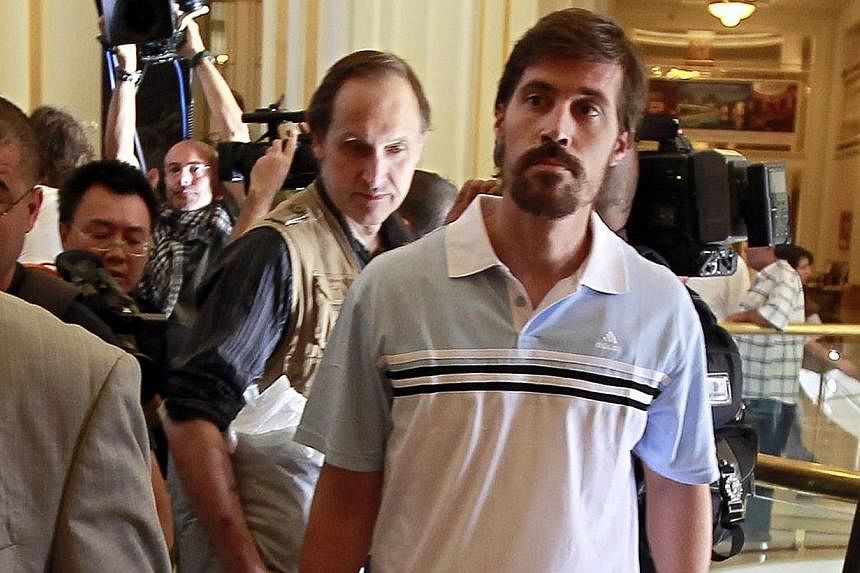WASHINGTON (AFP) - Journalist James Foley's jihadist captors had demanded a ransom of 100 million euros - US$ 132 million (S$164.96 million) - for his release, his employer said on Thursday after a video of the American's gruesome execution was made public.
"GlobalPost CEO Philip Balboni confirms that the initial ransom demand from Jim Foley's captors was 100 million euros," a spokesman for the news website said.
Foley was reporting from Syria for GlobalPost and other outlets including AFP when he was abducted in November 2012, and Balboni had been closely involved in efforts to locate and free the photojournalist.
The extremist group, which calls itself the Islamic State, has marauded across large areas of Iraq in recent months.
On Tuesday it published a video showing one of its members beheading Foley. Balboni said the captors made contact with GlobalPost and the Foley family fewer than half a dozen times, and "the kidnappers never really negotiated" over their huge sum, but simply made their demand.
"We never took the $100 million figure seriously," Balboni told CNN.
Balboni said he and the family provided all information about their search for Foley and their contact with his captors to authorities at the FBI and State Department.
The US government opposes paying such ransoms, arguing that it only encourages more hostage-taking.
"We do not make concessions to terrorists. That includes: We do not pay ransoms," State Department deputy spokeswoman Marie Harf told reporters Thursday. Such payouts, she added, would only serve to "fund and finance exactly the groups (whose capabilities) we are trying to degrade."
Balboni referred to the release of several European hostages by Islamic State earlier this year, likely upon payment of ransoms that were "dramatically less" than what the group sought for Foley.
The family and GlobalPost were seeking to raise money "in the range" of the amount paid for the other hostage, Balboni added, without mentioning a dollar amount.
Harf referenced the other countries' ransom payments to the group, saying that in 2014 alone they amounted to millions of dollars, although she too did not provide a figure.
And she stressed that the US government "does not have contact with ISIL."
Balboni said he and the family provided all information about their search for Foley and their contact with his captors to authorities at the FBI and State Department.
After initial messages and the ransom demand, he said, the line of communication with the jihadists went cold until August 13, when they sent a terrifying message to the Foleys that their son would be killed.
The Pentagon revealed Wednesday that US special forces were sent into Syria earlier this year to try to rescue American hostages but they came up empty handed as the captives were not at the targeted location.
"This operation was a flawless operation, but the hostages were not there," Defense Secretary Chuck Hagel told reporters.

